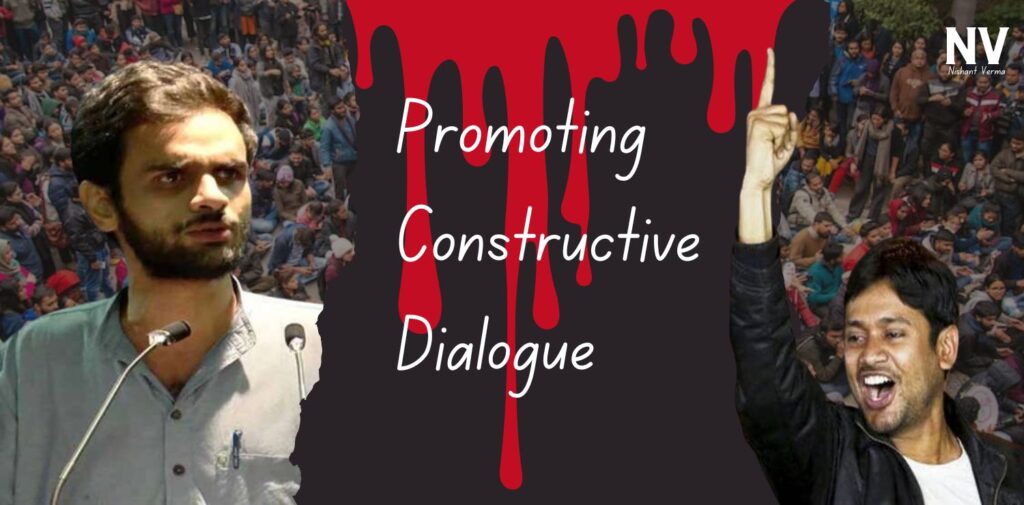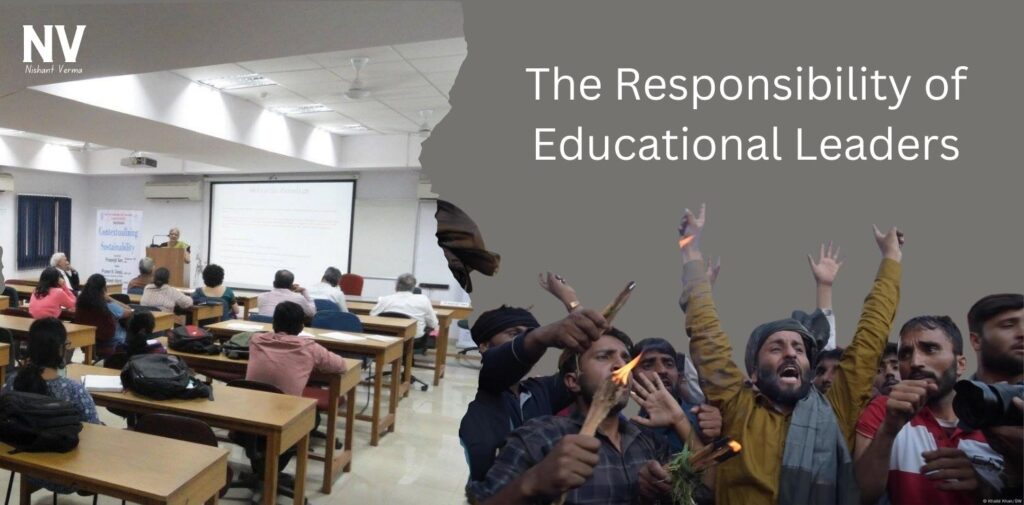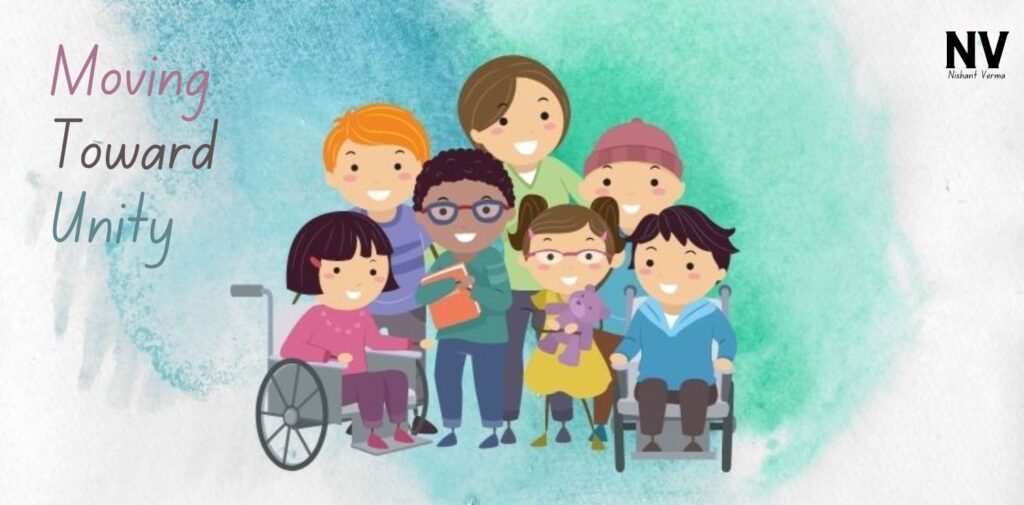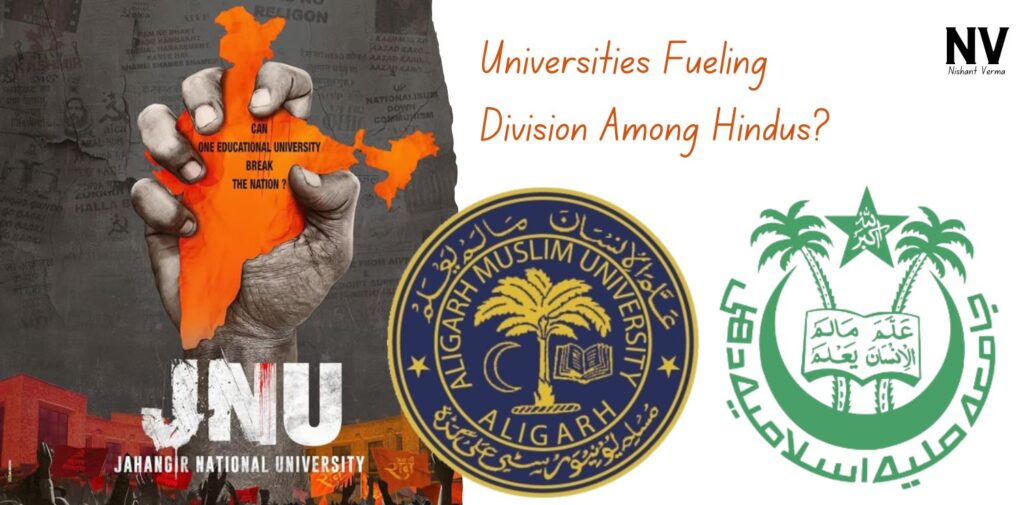In India, a nation celebrated for its rich diversity, the importance of understanding and unity among various cultural and religious groups is more vital than ever. Educational institutions, which should serve as sanctuaries of learning and dialogue, have occasionally become embroiled in controversies that raise concerns among different communities, particularly Hindus. This article explores these issues, advocating for awareness and constructive dialogue to promote harmony.
The Role of Educational Institutions
Educational institutions are not merely places for academic learning; they are also environments where young minds are shaped. Universities like Jawaharlal Nehru University (JNU) and Jamia Millia Islamia have the power to instill values of tolerance, empathy, and critical thinking. However, in recent years, they have been labeled as centers of anti-national activities, leading to a sense of unease among various communities, particularly Hindus.
Instances of protests and activism at these institutions have raised eyebrows. While students expressing dissent is a cornerstone of democracy, it’s crucial to ensure that such expressions do not foster division or extremism. Awareness of these activities can help communities engage in meaningful discussions about their implications.
Awakening Awareness Among Communities
It’s essential for communities to recognize the significance of these developments. Awareness can empower individuals to understand the broader context of activism in educational institutions. When Hindus and other groups become informed about these activities, they can engage in constructive conversations about national identity, social justice, and the importance of unity in diversity.

Promoting Constructive Dialogue
To address the concerns surrounding certain institutions, fostering a culture of open dialogue is crucial. Here are some ways to encourage this:
- Community Dialogues: Organizing events that bring together students and community members from different backgrounds can promote mutual understanding. These discussions can focus on shared values and the significance of unity amid diversity.
- Workshops on Critical Thinking: Providing workshops that enhance critical thinking and media literacy can help individuals better analyze information and engage thoughtfully with differing viewpoints. This can prevent misunderstandings and promote informed discussions.
- Civic Engagement Initiatives: Encouraging participation in community service can create opportunities for diverse groups to work together. Such interactions can build empathy and highlight the importance of collaboration across communities.

The Responsibility of Educational Leaders
Educational institutions must take proactive steps to address the concerns surrounding extremism. This includes:
- Clear Codes of Conduct: Establishing policies that outline acceptable forms of protest and expression can help ensure that dissent remains constructive rather than divisive.
- Promoting Responsible Leadership: Faculty and administration should model constructive dialogue, guiding students in expressing their beliefs while respecting differing opinions.
- Creating Inclusive Environments: Fostering an inclusive atmosphere where all voices are heard can mitigate feelings of alienation, which can sometimes lead to extremist sentiments.

Moving Toward Unity
As India navigates its diverse social landscape, the importance of awareness and constructive dialogue cannot be overstated. Recognizing the activities that raise concern among various communities is the first step toward fostering understanding. Hindus and others must engage in dialogue to bridge gaps and work towards a shared vision of unity.
By promoting a culture of awareness and inclusivity, educational institutions can help build a society where diversity is celebrated as a strength rather than a source of conflict. It is through constructive engagement that we can address misunderstandings and work together for a more harmonious future.
Conclusion: JNU
In conclusion, the challenges faced by educational institutions like JNU and Jamia regarding perceptions of extremism should be met with awareness and proactive dialogue. By fostering an environment that values understanding and cooperation, we can ensure that educational spaces contribute positively to society.
Let us strive to create a future where our educational institutions are not just centers of learning but also beacons of unity, helping us navigate the complexities of our diverse nation.




